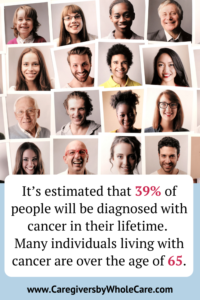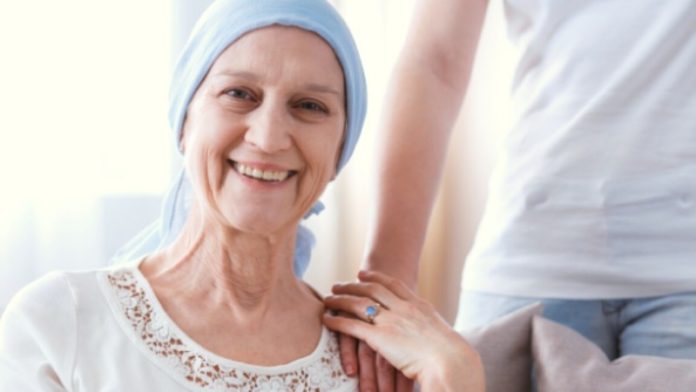Caregiving for a loved one with cancer comes with many challenges. Older adults with cancer often experience longer recoveries. Cancer can feel like a scary and overwhelming diagnosis. Thankfully, with modern advances in treatment and proper care – recovery is attainable.
Caring for Seniors with Cancer
Many of us face new challenges as we age, particularly health problems. These health conditions can further complicate our cancer care. If you are caregiving for a senior with cancer, it is important to learn about the unique challenges they may face.
 Cancer Recovery Challenges That Seniors Face
Cancer Recovery Challenges That Seniors Face
- Treating cancer poses a medical dilemma. In order to eliminate cancerous cells, the patient’s body is exposed to toxins in chemotherapy or damage by radiation.
- Cancer treatment is a delicate balance between under and over-treating. For a frail senior, treatment can be more harmful than cancer itself.
- A cancer patient’s body has to recover from the effects of cancer and the side effects of the treatment they received.
- Elderly cancer patients often have weakened immune systems due to the normal aging process, making their recovery more difficult.
- Cancer recovery can also be impacted by the presence of another chronic illness, like diabetes or heart disease.
- Seniors with cancer often have a longer recovery period. They also face more risks, side effects, monitoring, and medications than younger patients. (Cancer Network)
Identifying The Gaps in Your Caregiving Support
A cancer diagnosis can quite easily throw well-established household chore routines into disarray. The extra responsibilities that cancer treatment plans bring with them make it easy to overlook household chores.
While it’s completely natural to want to take care of it all yourself, it’s a lot for any family to handle all on their own. Examing where support gaps are and bringing in a professional caregiver to fill in can relieve the stress and pressure family caregivers tend to experience.
Give our team a call here: 615-422-7549 and visit https://caregiversbywholecare.com/ for more resources.
How A Professional Caregiver Can Support Cancer Patients During and After Treatment
Appointments:
Threshold amnesia is common in overwhelming situations. That’s why having a Caregiver attend appointments and take notes on what the doctor says. Caregivers can also help keep appointments organized and provide safe and timely transportation to and from treatments, the pharmacy, support group sessions, grocery pick-up, and more.
Medication Reminders:
A caregiver can, with timely reminders, help you stay on schedule and help you keep your medication log accurate.
Personal Hygiene and Light Housekeeping:
It is not uncommon for seniors to have trouble accomplishing personal care tasks and household chores while receiving chemotherapy or radiation. Our caregivers can offer support during grooming and toileting as well as laundry and other daily household chores.
Encourage emotional well-being:
Part of a caregiver’s role is to provide emotional support to their clients. Having a listening ear, an encouraging word, a compassionate presence by your side is priceless.
Nourishment:
Providing good nutrition during and after cancer treatment can help seniors maintain weight, keep up energy and strength and help them better tolerate symptoms. Sometimes, eating problems can occur due to treatment and result in various barriers that can include: difficulty swallowing, sore mouth, vomiting, loss of appetite, change in taste, and stomach problems. Professional caregivers have experience and training in helping to manage these issues.
Follow-up care:
After treatment concludes, it is important to regularly see your medical team to ensure cancer has not returned. Caregivers can play an essential role in providing transportation and helping track side effects after treatment to report to the doctor during the visits.
Home Care Tip:
Cancer treatment can involve tracking symptoms, medications, and a variety of appointments.
Take the time to organize your monitoring efforts in a planner you, your senior, and other caregivers share.
Please join our FREE Newsletter

















